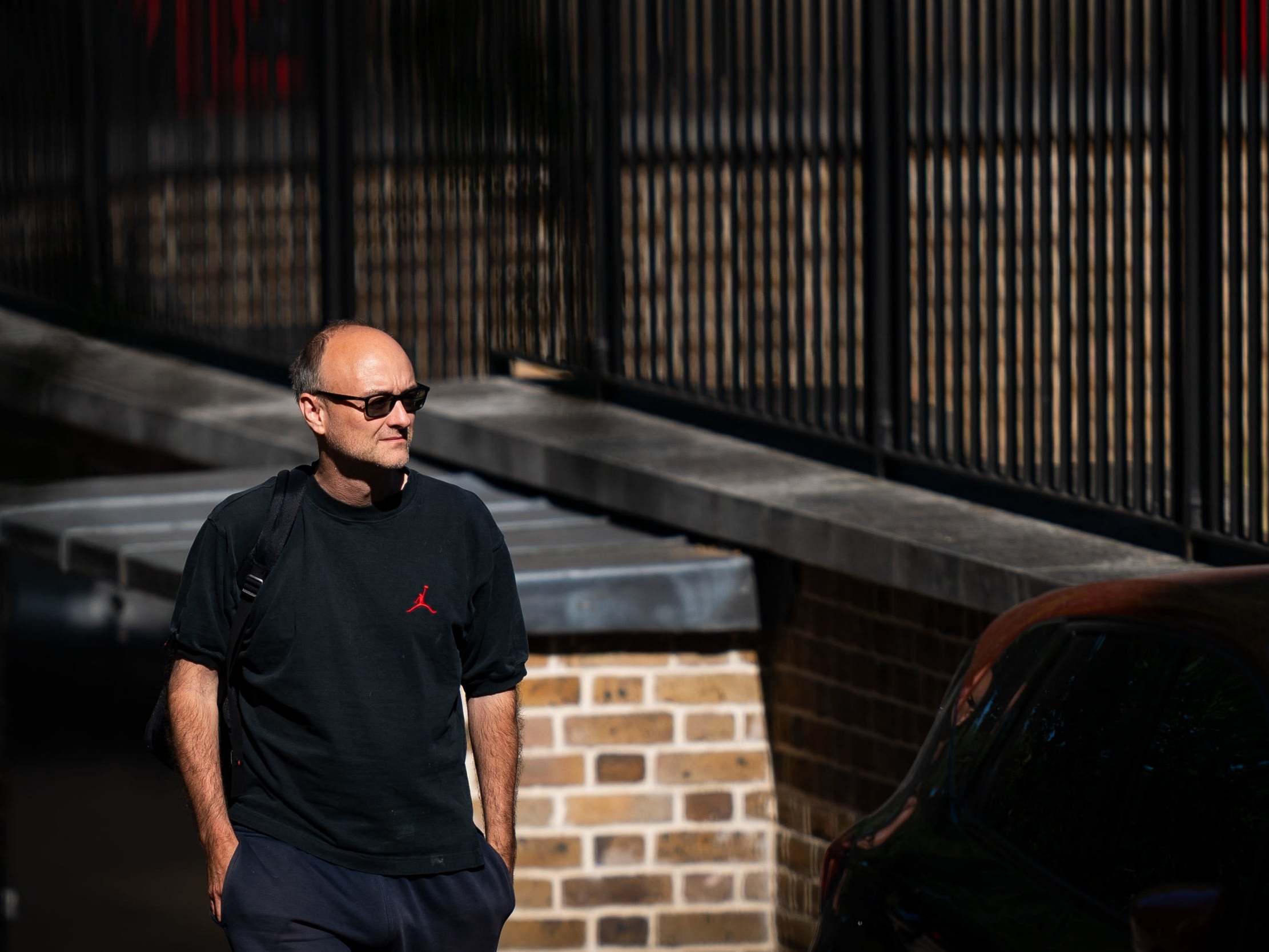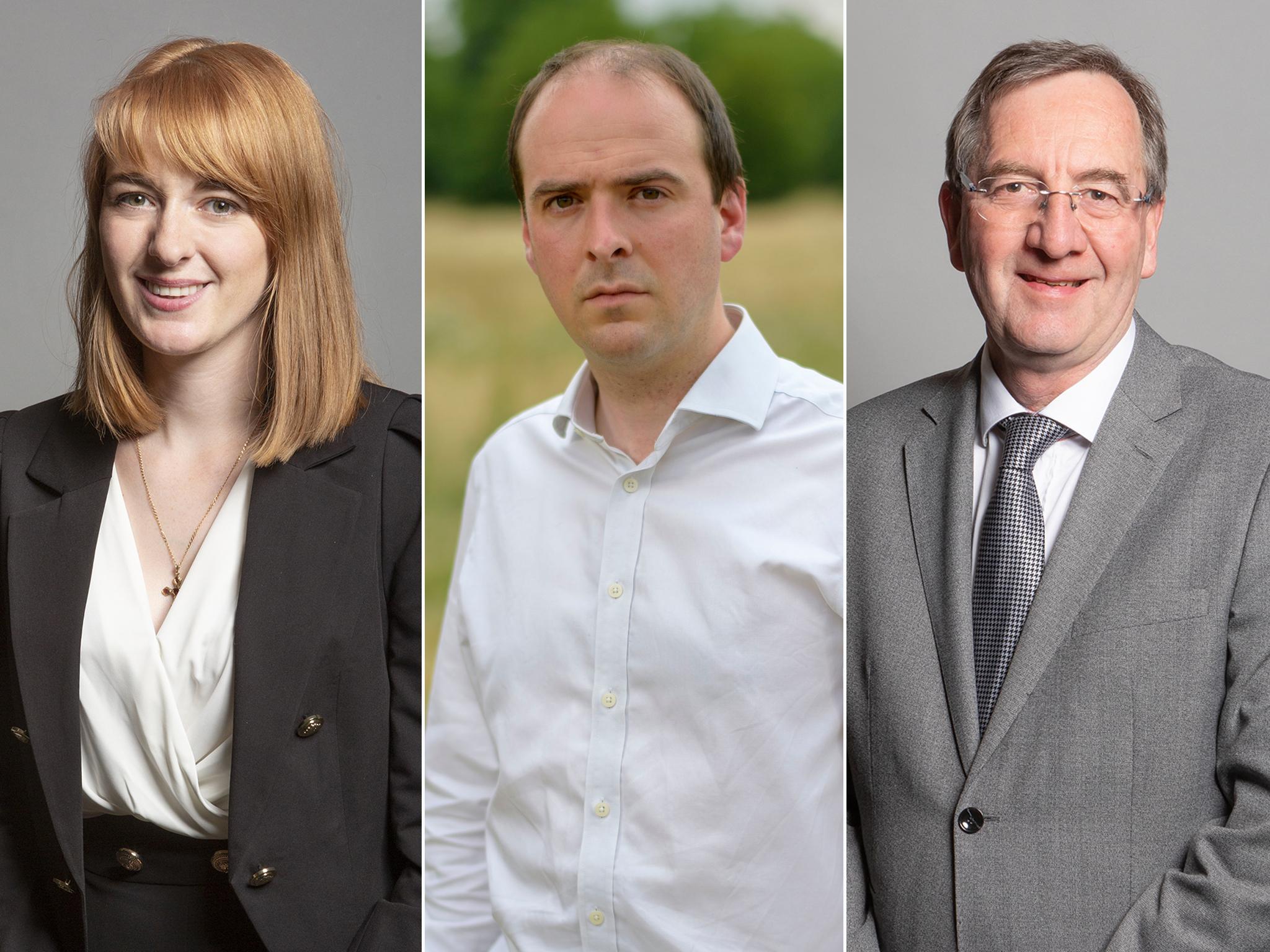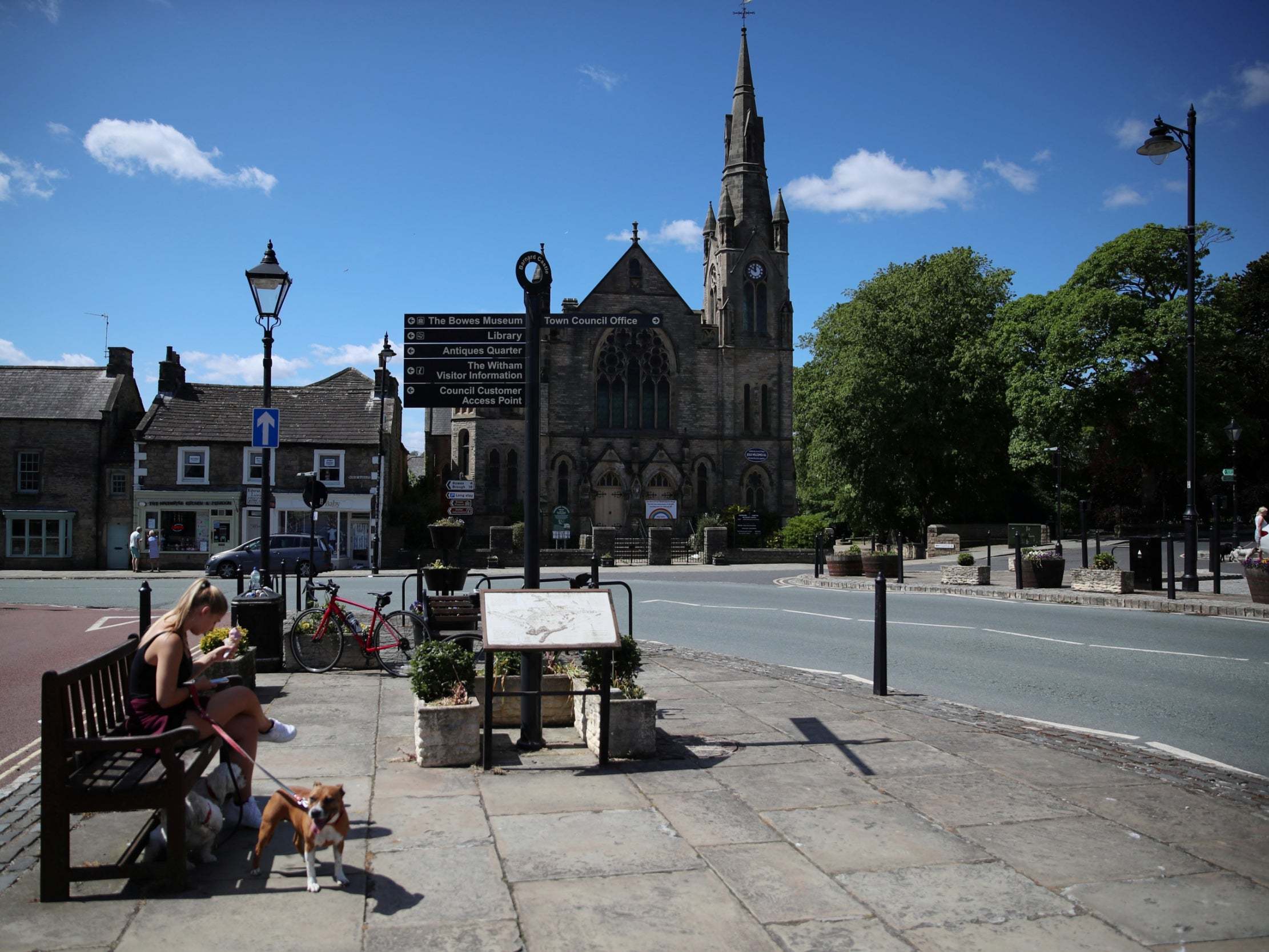‘Red wall’ Conservatives feel voter heat in wake of Cummings’s Durham adventure
The prime minister has called for country to move on, but his chief adviser’s trip up the A1 remains a cause of fury in the party’s new northern lands, finds Colin Drury. Could Labour’s fallen red wall be resurrected sooner than expected?


Late on Friday afternoon last week, Richard Holden, the Conservative MP for North West Durham, sent an innocuous tweet recommending the Westminster play This House.
“If you’re a bit of a political geek,” he wrote, “you’ll love it.”
It was his fifth post of the day. Others had included references to his work on a Commons select committee, his support for a local transport campaign and a mischievous swipe at Keir Starmer.
Followers would have expected all this. As with many of the Conservatives’ new northern MPs in what was once Labour’s Great Red Wall, Mr Holden is a regular – and oft-entertaining – tweeter.
Except, then, for more than four days, his feed went all but silent.
So, too, did those of his County Durham colleagues, Paul Howell of Sedgefield, and Bishop Auckland’s Dehenna Davison.
As revelations that Dominic Cummings had broken lockdown restrictions exploded into public anger, these three MPs whose constituencies were at the heart of the story – indeed, Tory MPs all across the north – fell uncharacteristically quiet. Left suspended at the top of Ms Davison’s own Twitter account was a particularly pertinent post: a plea for people to stop visiting beauty spots in her constituency – home to Barnard Castle.
“They’re all new and they’d found themselves in the middle of a political crisis and they were s***-scared,” one northern Conservative MP tells The Independent today. “It was rock and hard place. If they spoke out against Cummings it’s been made clear you lose the goodwill of the prime minister. If they didn’t, is that goodbye to their majorities?”
In the end, the trio released a belated statement on Tuesday. It neither condoned nor condemned Boris Johnson’s favourite adviser for relocating to their county while displaying coronavirus symptoms. In driving to be near family, they said, Mr Cummings had acted out of parental concern although, they also stressed, “none of us would have made the decisions he made”.
So bland was it that it is understood the statement may have been approved by the spad himself.
Either way, the whole saga has raised one intriguing question: might this apparent betrayal of a crucial public health message have been the moment, just six months after stunning electoral success, the Conservatives started to lose support in these newly blue regions?
“I don’t know,” says that MP, who has remained publicly silent. “What I can say is it’s a self-inflicted wound that should never happened and, certainly in the middle of a pandemic, shouldn’t have been allowed to drag on so long.”

That there remains anger up here, seven days on, is undoubted. It’s palpable.
From the Bishop of Leeds, who accused Boris Johnson of treating the British people like “mugs”, to the unforgiving editorial line of the usually conservative Yorkshire Post – “a scandal which reveals a discernible arrogance and shameful hypocrisy at the heart of Downing Street” – the north does not appear ready to move on.
“It’s all I’ve been getting asked about,” says Nadeem Ahmed, leader of the Conservative group on Wakefield City Council – a city which itself went blue in 2019 for the first time since 1932. “It’s probably the only time I’ve been glad of isolation – because it means I’m not having to answer for what he did out on the street too.”
It seems like his career is being put before our health
Does he feel the government has lost people’s faith? “I’m sure of it,” he says. “You’ve got almost 40,000 people who’ve died because of this virus. And for every person who couldn’t go to the funeral of someone they love, they’ll remember this guy. And I’ll tell you what else: that anger will still be there in the voting booth.”
Heather Scott, the Conservative leader of Darlington Council, backs Mr Cummings. “But I’ve had some stick for saying that,” she admits. “People are 50-50 on it.”
Crucially, perhaps, it is not just politicians, newspapers and churchmen with still-strong opinions on the whole episode.
Doctors, builders, academics, students and retirees are among those critical of Mr Cummings’s escapade, with views generally ranging from perturbed to incandescent. Few are indifferent. Not one buys the idea that Mr Cummings’s trip to Barnard Castle on his wife’s birthday was within guidelines.
“If I’d have known we could drive 60 miles to test our eyes at Easter,” notes one, “I’d have probably tested mine with a drive to Cleethorpes.”
One person, Jacky Ramsden, a retired researcher manager from Lytham St Annes, lost her husband to coronavirus in March.
The 80-year-old was rushed to Blackpool Victoria Hospital after falling ill with Covid-19. From then until his death five days later, Jacky didn’t see him at all. Just nine family members were allowed at the funeral.
“It’s difficult to reconcile that with what Mr Cummings did,” the 63-year-old says. “But I’m more worried that people will now think, if he can break the rules, so can we, and then we end up with a second spike. It seems like his career is being put before our health.”
If just one person does not follow guidelines, as a result of his example, she says, and one person ends up in hospital as a result, “that will be directly on the prime minister’s head”.

Yet, just what the longer-term consequences of the affair will be – if indeed there will be any – remain difficult to gauge.
After their initial silence, plenty of the new intake of MPs came out supporting Mr Cummings. One, Ben Bradley, member for Mansfield, reckons a Facebook poll he conducted found 80 per cent support for Mr Cummings’s actions. If that seems at least a little skewed – and he doesn’t return a call to discuss – a northern Tory council leader, who asks not to be named, is more balanced.
He fears, he admits, reduced support in an area where even small shifts mean lost seats. But, he says, “certainly with the initial Durham trip, more people empathise than the media realises”.
Indeed, for what it’s worth, the so-called Workington Man – or at least, some Workington men – appears relaxed about the whole thing. On the morning after the election The Independent spoke to voters in this election target town – which voted Tory for the first time in 40 years, ostensibly because people wanted Brexit concluding.
“I still want it done,” says 73-year-old Mervyn Donnan when we speak again. “If this Cummings is the man to do it, I think he should stay. He broke the rules but I’m not sure that deserves the witch hunt.”
It is a view which may be more widely felt than is currently being recognised, says Matthew Flinders, professor of politics at Sheffield University.
All the same his own instinct, as a researcher into this stuff, is that the scandal has done some damage to the prime minister.
“I think it will leave a considerable dent in his reputation,” he says, “Not just because people in the north of England like straight-talking – which demonstrably Dominic Cummings has not done – but because these areas that voted Conservative for the first time in decades did so, in many cases, as a lent vote to have a particular project, Brexit, completed. And, so, what the Conservatives have to do, as they’ve made clear they know, is build trust from there for a wider appeal.
“Well, you look at what’s happened and I think that trust has now suffered a blow. It has caused reputational damage, and once reputational damage is done, people tend to look at events through that lens.”
Objectively, he adds, the government has not handled the coronavirus pandemic well: new figures show more people have died here per million than anywhere else in the world.
“People had been willing to give the benefit of the doubt because they recognised it is an unprecedented crisis,” says Professor Flinders. “But, now, because of this Cummings saga, I think, a lot more people will be a lot less inclined to be so forgiving.”
All MPs referred to – and more – were contacted for comment
Join our commenting forum
Join thought-provoking conversations, follow other Independent readers and see their replies
Comments